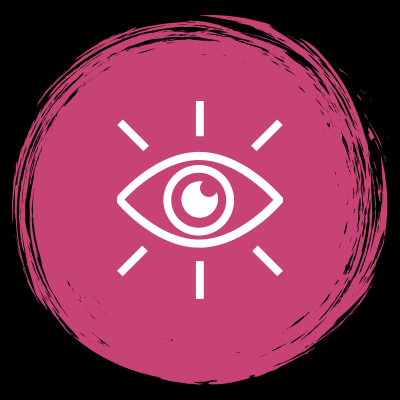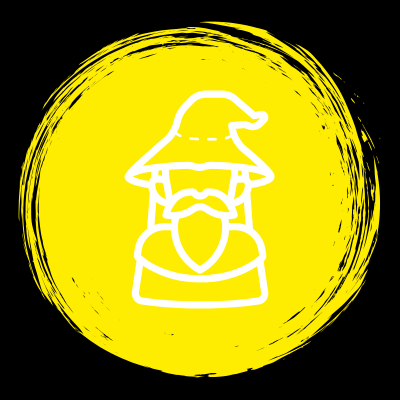“Should I moderate… or quit for good?”
That’s the question almost every one of my clients wrestles with when they finally decide to get honest about their drinking. I remember asking myself that very question, too, when I first started to examine my relationship with alcohol.
I’d been doing well—two full weeks of moderation. No weekday drinks, just two on the weekend. I felt like I was in control again.
Then came the birthday party. I told myself I’d stick to two, maybe three max. Only to wake up with a heavy hangover and a fuzzy memory of pouring the sixth glass.
I would waver between “I can moderate” and “I have to give up for good”—but neither felt quite right.
What I didn’t realize back then was that there’s a third road.
Today, after walking the path of breaking free from alcohol myself—and helping many others do the same…
My short and sweet answer?
Here is my short and sweet answer:
There’s a third road: a temporary break, and it may be the most empowering path of all.
Not to prove anything. Not as punishment. But as a controlled experiment. A way to pause the mental noise, reset your system, and discover what’s possible when alcohol is no longer in the way.
And at the end of those 30 days? You get to decide again—whether to continue with another 30 days, or to experiment with moderation from newfound clarity.
So why 30 days? Let’s walk through it.
The Downside of Prematurely Committing to Lifelong Abstinence
Let’s be honest—quitting forever sounds noble in theory, but in practice? It can backfire. Here’s why jumping straight into a lifetime commitment can actually make things harder, not easier:
-
It triggers “forever dread.”
Telling yourself “I can never drink again” before you’ve even had a single sober weekend is a surefire way to activate panic and dread. The brain rebels. The part of you that still feels attached to alcohol starts to mourn, resist, and bargain. -
It imposes rigidity.
When abstinence is framed as a permanent rule, it stops feeling like a choice. It becomes something you have to do, rather than something you want to explore. That kills curiosity. And curiosity is what actually moves us forward. -
It creates unnecessary pressure.
Swearing off alcohol forever makes the stakes feel impossibly high. One drink can suddenly feel like a catastrophe. So instead of experimenting and learning, you’re bracing yourself for failure, and shaming yourself if you slip. -
It robs you of the deeper opportunity.
Changing your relationship with alcohol isn’t about deprivation. It’s about expansion—discovering what becomes possible when alcohol is no longer in the way. But when you cling to “forever,” you risk missing the most powerful part: the gift of choosing what truly empowers you.
Why Moderation (When Coming from Excessive Drinking) Often Doesn’t Work
-
It keeps the reward circuit lit up.
Our brains are wired to repeat what feels good—especially when it offers quick relief from stress, anxiety, or emotional discomfort. Over time, reaching for a drink becomes like hitting a fast-dial button:
Cue: stress. Fast dial: grab a beer.
Moderation keeps that button alive. Every time you drink, even if it’s “just one,” you’re reinforcing the same neural pathway. The brain still believes alcohol is the tool for relief. The loop stays intact.
-
It preserves the root system.
When we try to moderate, we’re usually only changing the behavior—not addressing the why behind it. The low-level anxiety is still there. The stress and emotional weight haven’t gone anywhere. The ache for connection or escape is still humming in the background.
Without addressing those roots, the reasons that lead you to drink are still alive under the surface.
-
It invites mental chaos.
In other words, the fast-dial button is still there… and the need to use it is still there… you’re just no longer “allowed” to press it anytime you want.
It creates an exhausting mental loop:
- How many can I have tonight?
- Is this a special occasion?
- Can I just have one more?
You end up trapped in constant negotiation, decision fatigue, and a cycle of “giving in” followed by self-blame.
The 30 Reasons Why People Drink Checklist
Go from “What’s wrong with me?!” to “Oh, there’s NOTHING wrong!”
By signing up, you'll be added to Jeanette's (that's me!) newsletter list. Rest assured, you can unsubscribe at any time.
Why Choose the Third Road: A 30-Day Alcohol-Free Break
The power of one decision
Committing to a 30-day alcohol-free break quiets the mental chaos. It ends the need for ongoing inner debate. By making one clear decision and committing to it, you remove the daily burden of deciding whether or not to drink. No more negotiations, and peace is restored.
You start to learn what you actually use alcohol for
A break creates distance and space to uncover what alcohol was covering up. Whether it’s stress, anxiety, the need for connection, or a desire to escape—removing alcohol interrupts the automatic response to discomfort.
It gives you a chance to listen to your real needs and begin meeting them without a chemical crutch.
You get your brain back
Alcohol hijacks your reward system. Even a few drinks a week can create mental fog, low-grade anxiety, and craving cycles that ripple into the days that follow.
Thirty days gives your brain a chance to reset—to feel clear, calm, and back in your own body. By week two, many of my clients say, “I had no idea how much this was affecting me.”
You get to experience your life—undiluted.
Alcohol completely leaves your system in about two weeks, giving your body a chance to recover and rebalance without interference.
No more numbing the hard parts… or dulling the good ones. A 30-day break gives you a front-row seat to how alive your body, mind, and spirit can feel without alcohol dragging them down.
You may start to realize: while low moments still happen, they always move through—and the highs become more vivid, more real.

The Role of Boundaries in a Thriving Sober Life
At Sober Curiosity, we believe that truly breaking free from alcohol’s hold—and building a thriving alcohol-free life—takes more than just “stop drinking.” It takes four pillars to create a sustainable sobriety system:
- Pillar One – Value: uncovering your whys behind choosing sobriety
- Pillar Two – Belief: changing the story you’ve been told about alcohol and yourself
- Pillar Three – Action: breaking the drinking pattern and replacing alcohol with more empowering options
- Pillar Four – Result: embracing the full journey—both the wins and the setbacks
. In our Four Pillars Sobriety System™, this kind of reset lives in the third pillar: Action. The focus of this stage is to break the old pattern and replace alcohol with tools that empower you, rather than deplete you.
Join The Sober Curiosity Insider
Get bite-sized sober curious insights straight to your inbox. Making taking a break from alcohol easier than ever.
By signing up, you'll be added to Jeanette's (that's me!) newsletter list. Rest assured, you can unsubscribe at any time.
TL;DR: “Why is it so hard to say no to alcohol?
🧠 Saying no is hardwired to feel risky — our brains are built for connection, and we instinctively want to avoid rocking the boat.
📉 While a “no” might cause short-term discomfort, it often leads to long-term respect.
🌿 Saying no doesn’t have to be blunt — it can be graceful, spacious, even kind.
💖 At its core, every “no” is actually a yes — to your values, your peace, and the life you’re choosing.

TL;DR: Should I moderate or quit for good?
If you’re stuck between moderation and quitting for good, there’s a third road: a committed 30-day break.
Here’s why this path might be the best place to start:
⚖️ Moderation keeps you stuck in mental chaos and emotional bargaining
🚫 “Forever” abstinence can trigger dread, resistance, and rigidity
⏸️ A short break quiets the noise and gives your brain, body, and heart a chance to reset
🌱 You get to experience your life undiluted—and then decide what’s next with clarity
Bottom line?
You don’t have to pick one extreme. You get to experiment first.






You’re Too Smart to Still Be White-Knuckling It.
Take this quick 7-question AF Breakthrough Quiz below to find out exactly where you are in your alcohol-free (AF) journey—and what to focus on next to stop spinning your wheels and finally break the cycle for good.

